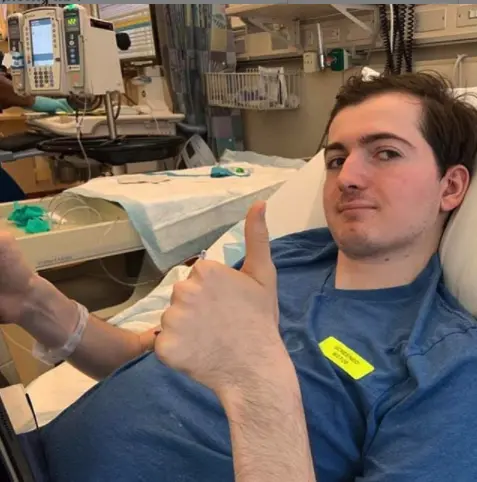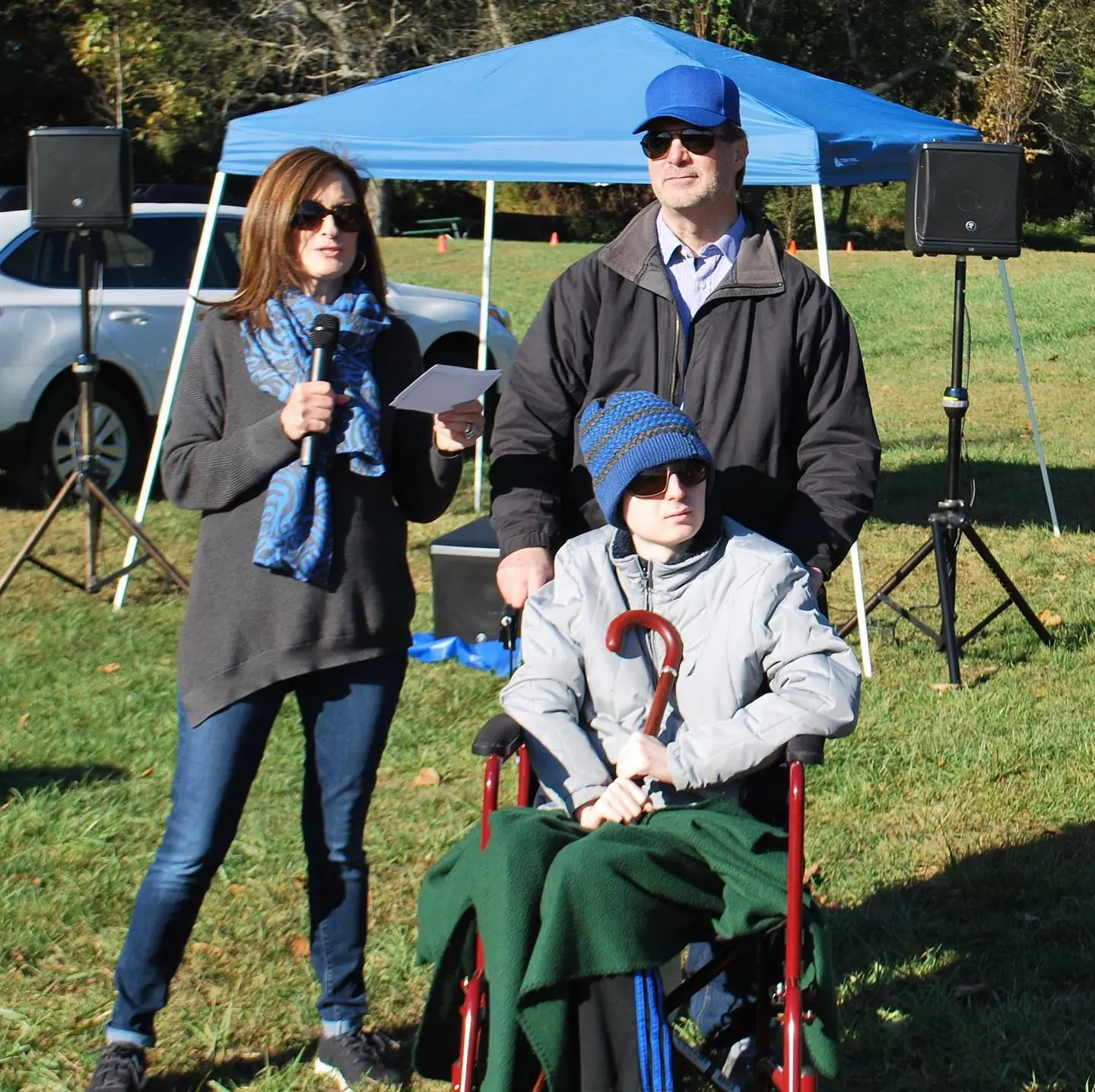Phil and Andrea Marella of Greenwich Connecticut lost their daughter Dana Jesse Marella to Niemann-Pick type C, a neurodegenerative disease in 2013.
Now, their youngest child, Andrew, 21, is also battling NP-C as he experiences seizures along with walking and swallowing issues. However, Andrew has benefited from two experimental medications and has been a patient in the clinical trial of Adrabetadex for almost seven years.

In the process, having survived heartbreak and also gained hopeful news, the Marellas have learned things to pass onto other families whose loved ones have been impacted by a neurodegenerative disease like NP-C. The Marellas, who are related to famous French Connection NYPD detective and movie/TV producer Sonny Grosso, offer these supportive tips and tools:
1) With rare diseases like Niemann-Pick type C (NPC), the first challenge is getting an accurate diagnosis. Too many primary care doctors know very little about rare diseases. Also, patients with certain symptoms are sent to a specialist for those symptoms, but too often the specialist does not know how to diagnose the underlying condition. In the case of NPC, the average time from first signs of the disease to diagnosis is over four years. Sadly, over that four-year span, a disease like NPC can progress dramatically. In our case, with access to all of the medical resources in the NYC metro area, it took over three years to have our daughter Dana diagnosed. So as my first advice to a family facing a diagnosis challenge, I would recommend that they see a genetic specialist.
2) Our daughter Dana was diagnosed by an exceptional pediatric neurologist who was familiar with the NPC. Listening to other families’ stories with NPC and other rare diseases, however, I think whenever a patient has difficulty getting a diagnosis, geneticists seem to have been a faster route to a diagnosis. Many rare diseases are genetic in nature and geneticists seem, perhaps logically, to be more aware of these diseases. Our youngest child, Andrew, was also diagnosed with NPC, but his diagnosis was simpler, but no less devastating.
3) Once someone learns of a rare disease diagnosis, I would expect that their doctor should be able to point them in the direction of patient care organizations that can provide information on expectations, care and possible treatments. Many such organizations are very involved in funding research as well and have the knowledge base of other families for information and support. There are also good online resources for clinical trials such as ClinicalTrials.gov where a family can learn about potential therapies.
4) Often, one of the greatest challenges in caring for a child with a rare disease is that there can be wide differences in the symptoms. Every child is unique, so it is important to determine what care will benefit the child. Then since most of these diseases are chronic, you need to develop regimens to assure constant exercise of that care to keep a child healthy. This is even more challenging with a progressive disease because you need to constantly revaluate what care the child needs and how best to provide it.
5) Another challenge is keeping the patient focused on a positive future. Our son Andrew and some of the other NPC patients who have had the benefit of our experimental treatments are also more cognizant of their affliction and what it means. So it is a challenge to keep them feeling good about themselves and their future. In Andrew’s case, he also knows that NPC took his sister Dana. Fortunately for us, we feel the future for Andrew and many of the other NPC kids is good and we can emphasize that to him daily.
6) And, then as a parent and caregiver, you need to develop your own coping strategies. For us, first would have to be our faith and the support of our family and friends. But the support of our community has also been overwhelming as we try to be a part of the solution with our research charity, Dana’s Angels Research Trust. It was helpful for us to get very involved in the NPC community and try to help bring forward the science and potential treatments.
Phil Marella optimistically adds: “Being engaged with the other family charities and the brilliant researchers on the front lines of the fight keeps you focused on the progress. It can never happen fast enough for a parent of a sick child, but helping to push things along as quickly as possible gives you hope for a better future.”

In 2002 and in honor of Dana, the Marella family founded Dana’s Angels Research Trust (DART) that has raised about $5 million to help in the fight. Their DART TO THE FINISH annual charity walk is a “Virtual Walk” kicking off September 26 till October 03, 2020.
Check out DART, and how to register for the DART to the Finish Walk. Also drop in on DART at Facebook, Twitter and Instagram.





Leave your comments
Post comment as a guest